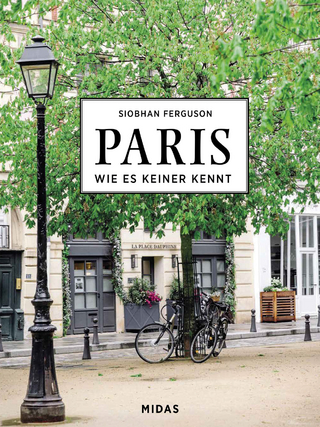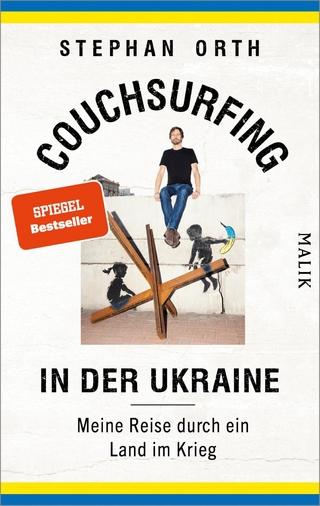
In Other Words
Knopf (Verlag)
978-1-101-94765-4 (ISBN)
- Titel ist leider vergriffen;
keine Neuauflage - Artikel merken
National Best Seller
From the best-selling author and Pulitzer Prize winner, a powerful nonfiction debut-an "honest, engaging, and very moving account of a writer searching for herself in words." -Kirkus Reviews (starred)
In Other Words is a revelation. It is at heart a love story-of a long and sometimes difficult courtship, and a passion that verges on obsession: that of a writer for another language. For Jhumpa Lahiri, that love was for Italian, which first captivated and capsized her during a trip to Florence after college. Although Lahiri studied Italian for many years afterward, true mastery always eluded her.
Seeking full immersion, she decides to move to Rome with her family, for "a trial by fire, a sort of baptism" into a new language and world. There, she begins to read, and to write-initially in her journal-solely in Italian. In Other Words, an autobiographical work written in Italian, investigates the process of learning to express oneself in another language, and describes the journey of a writer seeking a new voice.
Presented in a dual-language format, this is a wholly original book about exile, linguistic and otherwise, written with an intensity and clarity not seen since Vladimir Nabokov: a startling act of self-reflection and a provocative exploration of belonging and reinvention.
JHUMPA LAHIRI is the author of four works of fiction: Interpreter of Maladies, The Namesake, Unaccustomed Earth, and The Lowland; and a work of nonfiction, In Other Words. She has received numerous awards, including the Pulitzer Prize; the PEN/Hemingway Award; the PEN/Malamud Award; the Frank O'Connor International Short Story Award; the Premio Gregor von Rezzori; the DSC Prize for South Asian Literature; a 2014 National Humanities Medal, awarded by President Barack Obama; and the Premio Internazionale Viareggio-Versilia, for In altre parole.
ANN GOLDSTEIN is an editor at The New Yorker. She has translated works by, among others, Elena Ferrante, Pier Paolo Pasolini, Primo Levi, Giacomo Leopardi, and Alessandro Baricco, and is the editor of The Complete Works of Primo Levi in English. She has been the recipient of the PEN Renato Poggioli Translation Award, a Guggenheim Fellowship, and awards from the Italian Foreign Ministry and from the American Academy of Arts and Letters.
"Gorgeous . . . the most unusual of self-portraits. It is fitting that Italy, a nation with no unifying language for centuries, should inspire a writer of Jhumpa Lahiri's stature to organize her reflections around the concept of exile. Why abandon the English language that made her famous, and move with her family to Rome? Because she was in love . . . Lahiri's exuberant tone may surprise readers used to the understatement and quiet grace of her acclaimed novels and short stories. In Other Words presents the same author with a different voice-a new expressive vein. The [book's] bilingual format is appropriate: All the personal experiences are connected to linguistic ones, all the linguistic issues refracted through the author's life. In Other Words ends at a crossroads, with Lahiri set to leave Rome and return to America, not knowing what will come of her affair with Italian. Dante's words [about exile] seem relevant when speaking about In Other Words, a book that is everywhere about displacement and the discoveries it can lead to. Lahiri reached out to Italian when English stopped offering her the solitude she craved as a writer; now that she has left Italy we must wait to see where the arrow of exile points her." -Joseph Luzzi, The New York Times Book Review
"Bold, elegant, poignant. In Other Words artfully and touchingly paints Lahiri's journey into a new life. Her joy in working with language emanates from every page; the uncomplicated frankness of her voice allows her to cover a satisfyingly wide range of subjects. She expresses and reframes sentiments about the nature of love, both romantic and maternal, through the lens of her relationship to Italian, and offers fascinating peeks into her world. . . . Even while it resonates with haunting vulnerability, overall the book never feels too densely confessional. As a milestone in Lahiri's career, In Other Words embodies a tremendous feat: the relinquishment of the mastery and comfort of the old, and the complete, unsparing immersion in the new. In what felt to her like a dangerous leap of faith, she lets her insights stand naked and alone, garbed in neither character nor plot-and all the more beautiful and true for their lovely guilelessness.. . . A pleasure to read." -Emily Zhao, The Harvard Crimson
"What separates an artist from a creator is one's insatiable desire to develop his or her craft, one's perpetual feelings of dissatisfaction and the willingness to embrace challenges, even if that means reinvention. Lahiri's new book is an expression of just this." -Nicholas LaRousse, Everyday eBook
"A love letter to language, Lahiri delivers a stunning memoir . . . The journey of a writer seeking a new voice, In Other Words is especially a must-read for language nerds-and anyone who writes." -Melissa Ragsdale, Bustle, "12 Women of Color Authors You Need to Know This Year"
"In Other Words is about Lahiri's obsessive desire to learn Italian, and the quest to find an authentic authorial voice. Writing in Italian gave Lahiri a license to be imperfect. Buried 'under all the mistakes, all the rough spots, is something precious. A new voice, crude but alive,' she writes . . . Lahiri's writing in Italian is simpler than her English prose. Just the essential words, feelings and hints of scene remain. It's not clear if Italian will be the new home for her writing, or if she will eventually resume work in English. Regardless of the language, I know I will want to read it." -Julie Hakim Azzam, Pittsburgh Post-Gazette
"Jhumpa Lahiri is at a crossroads. The Pulitzer Prize-winning fiction writer never fully identified with English, or with Bengali for that matter, leading her to seek a third language . . . Whatever language Lahiri decides to continue working in, her strength as an interpreter and translator between cultures will remain; she possesses the power to universalize the very particular experiences of cultural and linguistic transplants. It allows her to achieve the hi
THE CROSSING
I want to cross a small lake. It really is small, and yet the other shore seems too far away, beyond my abilities. I'm aware that the lake is very deep in the middle, and even though I know how to swim I'm afraid of being alone in the water, without any support.
The lake I'm talking about is in a secluded, isolated place. To get there you have to walk a short distance, through a silent wood. On the other side you can see a cottage, the only house on the shore. The lake was formed just after the last ice age, millennia ago. The water is clear but dark, heavier than salt water, with no current. Once you're in, a few yards from the shore, you can no longer see the bottom.
In the morning I observe people coming to the lake, as I do. I watch them cross it in a confident, relaxed manner, stop for some minutes in front of the cottage, then return. I count their arm strokes. I envy them.
For a month I swim around the lake, never going too far out. This is a more significant distance-the circumference compared to the diameter. It takes me more than half an hour to make this circle. Yet I'm always close to the shore. I can stop, I can stand up if I'm tired. It's good exercise, but not very exciting.
Then one morning, near the end of the summer, I meet two friends at the lake. I've decided to make the crossing with them, to finally get to the cottage on the other side. I'm tired of just going along the edge.
I count the strokes. I know that my companions are in the water with me, but I know that each of us is alone. After about a hundred and fifty strokes I'm in the middle, the deepest part. I keep going. After a hundred more I see the bottom again.
I arrive on the other side: I've made it with no trouble. I see the cottage, until now distant, just steps from me. I see the small, faraway silhouettes of my husband, my children. They seem unreachable, but I know they're not. After a crossing, the known shore becomes the opposite side: here becomes there. Charged with energy, I cross the lake again. I'm elated.
For twenty years I studied Italian as if I were swimming along the edge of that lake. Always next to my dominant language, English. Always hugging that shore. It was good exercise. Beneficial for the muscles, for the brain, but not very exciting. If you study a foreign language that way, you won't drown. The other language is always there to support you, to save you. But you can't float without the possibility of drowning, of sinking. To know a new language, to immerse yourself, you have to leave the shore. Without a life vest. Without depending on solid ground.
A few weeks after crossing the small hidden lake, I make a second crossing, much longer but not at all difficult. It will be the first true departure of my life. On a ship this time, I cross the Atlantic Ocean, to live in Italy.
THE DICTIONARY
The first Italian book I buy is a pocket dictionary, with the definitions in English. It's 1994, and I'm about to go to Florence for the first time, with my sister. I go to a bookshop in Boston with an Italian name: Rizzoli. A stylish, refined bookshop, which is no longer there.
I don't buy a guidebook, even though it's my first trip to Italy, even though I know nothing about Florence. Thanks to a friend of mine, I already have the address of a hotel. I'm a student, I don't have much money. I think a dictionary is more important.
The one I choose has a green plastic cover, indestructible, impermeable. It's light, smaller than my hand. It has more or less the dimensions of a bar of soap. The back cover says that it contains around forty thousand Italian words.
As we're wandering through the Uffizi, amid galleries that are almost deserted, my sister realizes that she's lost her hat. I open the dictionary. I go to the English-Italian part, to find out how to say "hat" in Italian.
| Erscheinungsdatum | 31.01.2016 |
|---|---|
| Übersetzer | Ann Goldstein |
| Zusatzinfo | B&W ILLUSTRATIONS |
| Sprache | englisch |
| Maße | 135 x 210 mm |
| Gewicht | 290 g |
| Themenwelt | Literatur ► Romane / Erzählungen |
| Reisen ► Reiseberichte ► Europa | |
| Geisteswissenschaften ► Sprach- / Literaturwissenschaft ► Anglistik / Amerikanistik | |
| Schlagworte | Englisch; Biografien/Erinnerungen • Lahiri, Jhumpa |
| ISBN-10 | 1-101-94765-9 / 1101947659 |
| ISBN-13 | 978-1-101-94765-4 / 9781101947654 |
| Zustand | Neuware |
| Haben Sie eine Frage zum Produkt? |
aus dem Bereich


